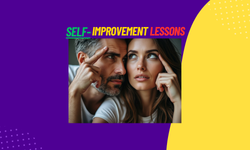A Beginner’s Guide to Meditation: Unlocking Its Benefits
Hey there! If you’re reading this, chances are you’ve heard about meditation and are curious to give it a try. Maybe you’re feeling a bit overwhelmed by life, or you’re just looking for a way to find some calm in the storm. Whatever brought you here, I’m excited to share this beginner’s guide to meditation with you. As someone who started meditating a few years ago and saw my life transform in ways I never expected, I can tell you—it’s worth exploring. Let’s dive into what meditation is, how to get started, and the incredible benefits it can bring to your life.
What Is Meditation, Anyway?
At its core, meditation is about training your mind to focus and be present. It’s not about emptying your head of thoughts (spoiler: that’s nearly impossible!) or becoming some ultra-zen monk overnight. It’s a practice of noticing your thoughts, feelings, and surroundings without getting swept away by them. Think of it like mental exercise—building a stronger, calmer, and more focused mind over time.
There are tons of meditation styles out there—mindfulness, transcendental, guided, loving-kindness, and more—but as a beginner, you don’t need to stress about the differences. We’ll focus on mindfulness meditation, which is super approachable and a great starting point.
Why Should You Try Meditation?
Before we get into the “how,” let’s talk about the “why.” Meditation has been studied extensively, and the science backs up what practitioners have known for centuries: it can change your life. Here are some of the biggest benefits:
- Reduces Stress: Meditation lowers cortisol (the stress hormone) levels, helping you feel less frazzled. I used to get so wound up over work deadlines, but after a few weeks of meditating, I noticed I could handle pressure with way more ease.
- Improves Focus: In our distracted, phone-obsessed world, meditation helps sharpen your attention. Studies show it can improve concentration and even boost productivity.
- Boosts Emotional Well-Being: Regular meditation is linked to lower rates of anxiety and depression. It’s like giving your brain a daily dose of positivity.
- Enhances Self-Awareness: Meditation helps you tune into your thoughts and emotions, making it easier to understand yourself and break unhealthy habits.
- Better Sleep: Struggling with insomnia? Meditation can help calm a racing mind, making it easier to drift off.
- Physical Health Perks: From lowering blood pressure to boosting immunity, meditation’s benefits extend beyond your mind.
Sounds pretty great, right? The best part is you don’t need to meditate for hours to see results. Even 5-10 minutes a day can make a difference.
Getting Started: A Simple Meditation Practice
Ready to give it a go? You don’t need fancy equipment, a quiet Himalayan cave, or even a lot of time. Here’s a step-by-step guide to start meditating today.
1. Find a Quiet Spot
Pick a place where you won’t be disturbed for a few minutes. It could be your bedroom, a cozy corner of your living room, or even a park bench. I started meditating on my couch with noise-canceling headphones to drown out my neighbor’s dog barking.
2. Get Comfortable
Sit in a way that feels good—on a chair, cross-legged on the floor, or even lying down if sitting’s not your thing (just try not to fall asleep!). Keep your back straight but relaxed. Rest your hands on your lap or knees.
3. Set a Timer
Start small—5 minutes is perfect for beginners. Use your phone’s timer or a meditation app like Headspace or Calm if you want some guidance. I love using an app because the soothing voices make me feel like I’m not doing it “wrong.”
4. Focus on Your Breath
Close your eyes (or keep them softly open if that feels better) and bring your attention to your breath. Notice the air moving in and out of your nose or the rise and fall of your chest. Don’t try to change your breathing—just observe it.
5. Let Thoughts Come and Go
Here’s the big one: your mind will wander. That’s normal! When you notice your brain drifting to your to-do list or what’s for dinner, gently bring it back to your breath. No judgment, no frustration. It’s all part of the process.
6. Wrap It Up
When your timer goes off, take a moment to notice how you feel. Maybe wiggle your fingers and toes, take a deep breath, and open your eyes. Congrats—you just meditated!
Tips for Sticking With It
Like any new habit, meditation takes practice. Here are some tips to make it stick:
- Start Small: Five minutes a day is better than an hour once a month. Consistency is key.
- Make It a Routine: Try meditating at the same time each day—like first thing in the morning or before bed. I meditate right after my morning coffee, and it’s become as natural as brushing my teeth.
- Be Kind to Yourself: Some days, your mind will feel like a wild monkey. That’s okay! Every session is progress, even if it doesn’t feel “perfect.”
- Try Guided Meditations: Apps like Insight Timer or YouTube have tons of free guided meditations for beginners. They’re like training wheels for your practice.
- Mix It Up: If sitting still feels tough, try a walking meditation where you focus on each step or a body scan where you tune into different parts of your body.
My Meditation Journey: A Personal Story
When I started meditating, I was skeptical. I thought I didn’t have time, and I wasn’t sure it would do anything for me. But I was stressed out, snapping at my family over little things, and struggling to focus at work. So, I gave it a shot—5 minutes a day for a month. The first week was rough; I kept thinking about emails or what I was going to cook for dinner. But by week two, I started noticing small changes. I felt calmer during tense moments. I was less reactive when my kids were driving me up the wall. And I started sleeping better, which was a game-changer.
Now, meditation is my daily reset button. It’s not magic—it doesn’t erase life’s challenges—but it gives me the tools to handle them with more grace and clarity. I’m not a guru by any means, but I’m a happier, more grounded version of myself.
Common Myths About Meditation
Let’s bust a few myths that might be holding you back:
Myth: You need to stop thinking. Nope! Meditation is about observing thoughts, not eliminating them.
Myth: It’s religious. While some meditation practices have spiritual roots, mindfulness meditation is secular and works for anyone, regardless of beliefs.
Myth: You need hours to see benefits. Even a few minutes a day can make a difference.
Myth: You’re bad at it if your mind wanders. Wandering is part of the process. The magic happens when you bring your focus back.
Ready to Transform Your Life?
Meditation is like a gift you give yourself—a chance to slow down, reconnect, and build a stronger, more resilient mind. You don’t need to be perfect or have it all figured out. Just start where you are, with a few minutes a day, and watch how it ripples into every part of your life.
So, what do you say? Grab a comfy seat, set a timer, and give it a try. Your future, calmer self will thank you. Let me know in the comments how it goes or if you have any questions—I’d love to hear about your meditation journey. Happy meditating!
Thank you for reading. I hope my blog post, A Beginner’s Guide to Meditation: Unlocking Its Benefits, will be beneficial to you. Kindly share it with others. Until next time. Take care. Cheers!




